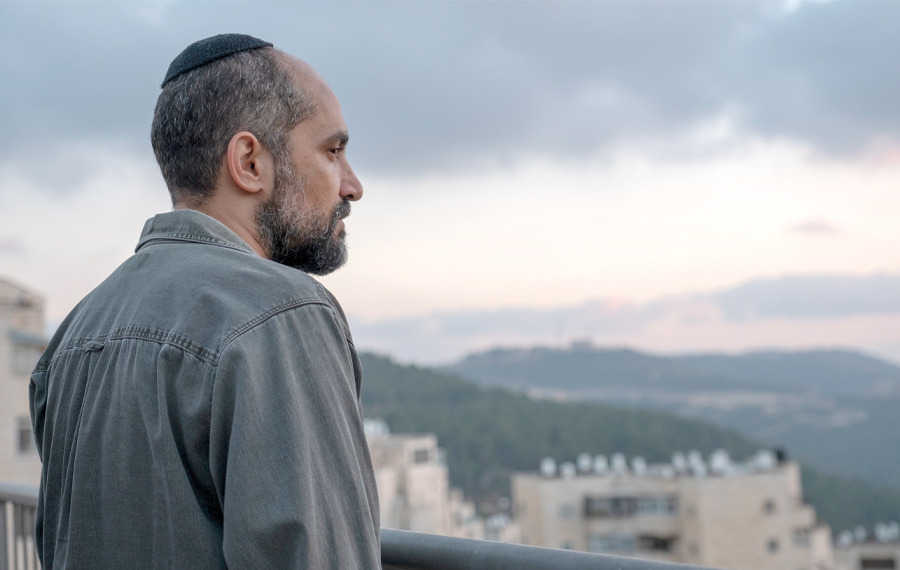 Photo courtesy National Geographic.
Photo courtesy National Geographic. After the abduction and slaying of three Jewish teenagers by Hamas terrorists in Jerusalem in the summer of 2014, the Israeli-Palestinian conflict reached a boiling point when ultra-Orthodox extremists retaliated by killing a young Palestinian. The incident unleashed an escalating series of protests, riots and rocket fire as war broke out in Gaza.
The HBO 10-part series “Our Boys,” premiering on Aug. 12, focuses on the investigation into the revenge killing of the Palestinian youth — Mohammed Abu Khdeir — to tell a bigger-picture story about the psychology of hate and vengeance. The series is told from the perspectives of the Abu Khdeir family as well as the lead investigator for the Shin Bet, and an impressionable young Charedi man who was involved in the crime.
Before participating in a panel presentation for the Television Critics Association, creators/writers/directors/executive producers Hagai Levi (“The Affair”), Joseph Cedar (“Norman”), Tawfik Abu Wael (“Thirst), Keshet CEO Avi Nir (“Homeland”) and actor Shlomi Elkabetz discussed the project with the Journal.
“We understood that it was more complicated than a procedural crime story,” Levi said. “We had a huge question: How could it happen? Could it be us? Could it be our children? We tried to get into a very deep exploration of a hate crime, which is very relevant everywhere in the world.”
The filmmakers did extensive research, “speaking to everyone on all three sides of the story to get into the depth of every detail,” Cedar said. Levi laid out the overall structure, Cedar and Abu Wael separately tackled the Israeli and Palestinian perspectives, and all three brainstormed.
“The difficulty was figuring out how to structure the story so the audience is drawn into something that is endlessly complicated but still has to work as a thriller,” Cedar said. “We had separate political points of view, aesthetic tastes and styles of work, but the clashes became a method. When we argued about something we found a way to go deeper into what we were arguing about. We were obsessive about the smallest details and I think the show is a reflection of that obsession.”
“Each one of these guys has his own voice and perspective but still came up with a coherent and deep creation,” Nir said. “It symbolizes the show itself.”
The responsibility to accurately portray the facts and real people in the story was always paramount, Levi noted, but dramatic license was taken elsewhere. “There are characters based on real people but we’ve changed their names for reasons having to do with the alterations we needed to make for dramatic purposes, and there are characters that are fictional that helped us tell the story,” Cedar said.
Several characters are composites, including Simon, the Shin Bet officer played by Elkabetz, a writer-director making his acting debut in “Our Boys.”
“There’s a thread through the show that there’s a possibility for violence and a possibility for connection, but you have to choose.” — Avi Nir
“Simon is chasing the truth, and while doing it he has to fight [the system] and confront the reality of that summer in so many ways. He [represents] so many things that people felt. Becoming this person was to reveal a truth that nobody wants to talk about,” Elkabetz said.
Shot in Hebrew and Arabic, “Our Boys” blends documentary footage with the narrative, in a prayer scene at the Kotel, for example. “Jerusalem is a character in the show,” Nir said. “It’s part of the texture.”
A few focus groups aside, the series has not been seen in Israel or anywhere else, and the filmmakers are eager to see how it will be received. “It’s hard to predict but I think the quality of the show will speak for itself,” Nir said. “When you watch the show, maybe some of your preconceptions go away and you respond to the various characters and the truth in the story. You cannot predict whether it will change things, but the mere fact that it resonates is important.”
“Hopefully, what Avi is saying is true, that the story will suck the audience into the lives of our characters in a way that will override any political resistance,” Cedar said.
After an intense three-plus years spent on “Our Boys,” “I think all of us are going to run away from political issues. The next project for all of us will be more intimate,” Levi said. Elkabetz is returning to directing and Nir has several projects in the works including English-language remakes of the Israeli series “The A Word” and “The Baker and the Beauty.” But one question remained about the project at hand: Can telling stories like this make a difference?
Nir sees “more than a glimmer” of hope for the future. “There’s a thread through the show that there’s a possibility for violence and a possibility for connection, but you have to choose,” he said.
“I don’t believe that one show will make a difference, but I hope it will open doors for other stories like this to tell this complexity of life and give other Palestinians a platform to tell their stories,” Abu Wael added.
At the very least, Cedar hopes to elicit a greater understanding of the issues surrounding this subject. “I went into this project with many complicated moral questions about [that] summer and specifically the killers of Mohammed. By the end of the process, confusing things became less confusing, muddy waters became transparent. I think by the end of the tenth episode, there’s clarity for viewers who stick with us.”
“Our Boys” premieres at 9 p.m. Aug. 12 on HBO.






















 More news and opinions than at a Shabbat dinner, right in your inbox.
More news and opinions than at a Shabbat dinner, right in your inbox.